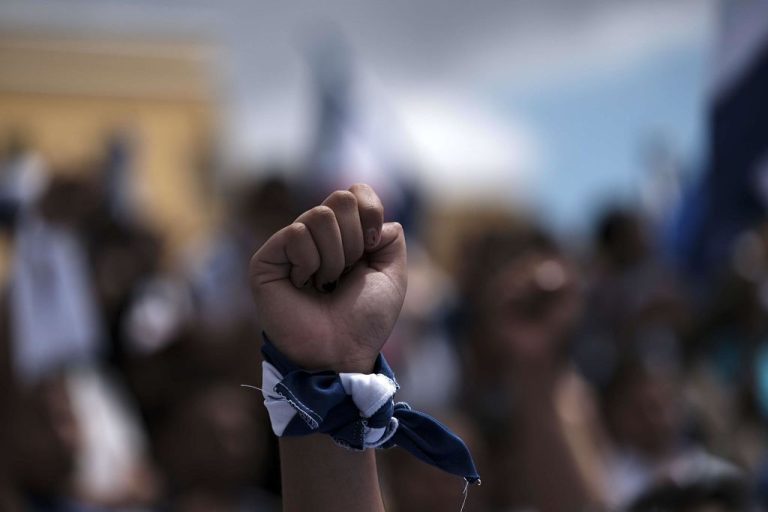27 de febrero 2019

Children of Exile: The Births “Sowing Hope” in the Camp of Nicaraguan Farmers

PUBLICIDAD 1M
PUBLICIDAD 4D
PUBLICIDAD 5D
“Your strength won’t depend on your negotiating strategies, but on the support of all of society for your efforts.”

Exiled Nicaraguans march in San Jose, Costa Rica in January 2019. Photo EFE/ Jeffrey Arguedas
Daniel Ortega’s acceptance of the democratic opposition’s demand – a demand also backed by many countries and international organizations – is a recognition that his repressive policies and his tale of a Coup have failed. He has accepted the dialogue because he’s weak and not because he’s strong.
Nonetheless, Ortega’s acceptance doesn’t mean that he’ll attend the dialogue in good faith, in search of an authentic solution to the crisis. His objectives aren’t the same as ours; he’ll be looking for a way to neutralize his isolation and the international sanctions, preserve his power and maintain himself in the Presidency until 2021, while evading justice and assuring impunity for him and his, among others.
He’ll also try to take advantage of the dialogue to confuse, divide and establish separate spinoff negotiations with different groups to weaken the united front of the democratic opposition. He’ll try to utilize the political prisoners as hostages and bargaining chips in order to offer as concessions what should be our just dues in terms of respect for our citizens and human rights.
The Civic Alliance has accepted the challenge of attending this complex and very risky negotiation. They’ve been accompanied in that decision by the majority of us in the opposition groups and organizations, within as well as outside the country. We’ve recognized the Alliance as our legitimate intermediaries.
I feel that in order to fulfill their difficult mission and neutralize Ortega’s inevitable manipulations, the Civic Alliance’s negotiating team should keep in mind a number of things:
The negotiating agenda, however, is the crucial question. Fortunately, on this point there’s nearly universal consensus, and you’ve already reflected this in your communications.
The first thing is to create the necessary atmosphere so that a constructive negotiation can take place, and that involves several things:
Without freedom of expression and mobilization; without an end to the abductions, threats and aggression; without the exiled being allowed to return to the country securely; and while our brothers and sisters continue in jail, no negotiation can lead to a real solution to the crisis.
Once the minimum conditions have been created, the dialogue can progress to the next point on the agenda, which is the realization of early elections that are free, clean, and transparent, with full guarantees.
In the end, the acid proof of the dialogue’s results will be the implementation of a legitimate solution to the crisis. That is, one that assures all Nicaraguans the reestablishment of our rights and freedoms, the construction of a democratic society, and integral justice for all the victims including those who’ve had to flee the country. The cycle of our recurring dictatorships must be broken once and for all. We don’t have the right to fail.
Archivado como:
PUBLICIDAD 3M
PUBLICIDAD 3D